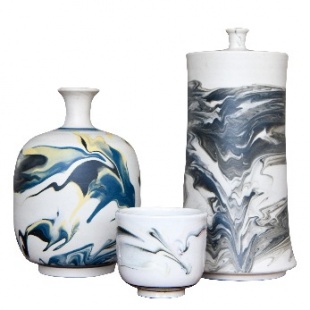Molding a career


After a year, Zhang had the skills, especially the most difficult, molding, and became a major craftsman at the plant.
But he still felt his craftsmanship was lacking something and he needed more input from his father. He also studied with Zhou Shulan, a porcelain art professor from Tsinghua University's arts and design academy.
Zhang first met Zhou when she visited the factory. He corresponded with her and asked questions and often came to Beijing to learn from her at the academy.
He began to take an interest in tracing the history and culture of the art.
"It feels only natural that I should know everything about something that I have been doing for so long," Zhang says.
He began to collect porcelain relics from across the country and studied their origins.
New lease of life
Years of practice has given him a sharp eye for antiques.
"Even if a historical item is broken or just a fragment of a whole piece, I'll take it in, once I know it's authentic," Zhang says.
In 2019, Zhang opened the carved porcelain museum in Pingding.
The museum covers an area of 1,700 square meters and presents his private collection to the public-more than 1,000 porcelain items from the Shang Dynasty (c. 16th century-11th century BC) to modern times.
The Pingding carved porcelain museum is a new cultural landmark in Pingding, says Zhang Xing, a porcelain art design professor from the Academy of Arts and Design, Tsinghua University.
It plays a positive role in protecting and inheriting the porcelain culture, Zhang Xing adds.
The idea of building the museum is to publicize and develop porcelain culture, Zhang Wenliang says. "I want to make those antiques come alive," he says.
In his museum, he is happy to act as a guide and introduce to visitors the history behind each item on display, and he has also set up on-site workshops for visitors, offering them the chance to make their own pottery.
Earlier this year, he took in two more apprentices. He now has nine.
"Innovation needs new blood and fresh power," Zhang Wenliang says.
"My only requirement for them is moral integrity and interest in porcelain and pottery."
He considers his role as an intangible culture inheritor both an honor and a responsibility.
"I have to not only inherit craftsmanship from the previous generation, but also pass it on," he says.





































